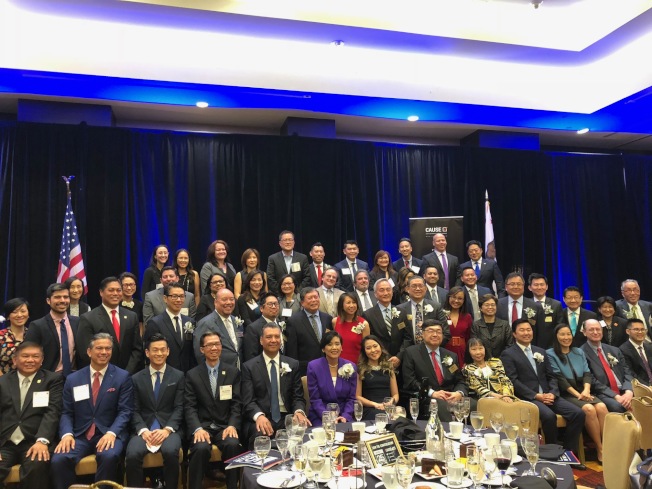“She started on the Monterey Park City Council and then worked her way up to State Assembly, then ran in the congressional house district from California that included Monterey Park,” Lai said. “So she kind of built it up that way. And I think that’s a great example of what we’re going to see in California in the future.”
Once candidates successfully make it out of these incubators and into elected office, it enables them to create a pipeline through staffing choices that can enable others to replace them in the future, Lai added.
BUILDING THE BENCH
Outside of government, organizations like CAUSE and the Asian Pacific Islander Community Leadership Foundation also contribute to the pipeline through leadership training.
Annie Lam, executive director of the League of California Cities Asian Pacific Islander Caucus and founder of APIs Mobilize, reaches out to high school students in areas with large AAPI populations and recently launched a training program to teach AAPI legislative staffers leadership and management skills.
“We all have our training programs to help build the bench. And that goes into the infrastructure building,” Lam said. “APIs get elected, then they hire API staff, then we train them so that they move up in the ladder in the legislature.”
By 2040, the number of Asian American registered voters is expected to hit 12.2 million, according to a 2015 study by the UCLA Center for the Study of Inequality and the Asian Pacific American Institute for Congressional Studies.
But the rapid growth, even with the rise in AAPI political representation and power, does not necessarily mean there will be proportional growth in the political sphere, Lai, the Santa Clara University professor, said.
“You’re already seeing trends within Asian-American communities, this low voter turnout,” he said. “What we need to do is focus on the reasons those gaps exist.”
According to the Pew Research Center, 49.3 percent of Asian voters went to the polls in the 2016 election, less than White (65.3 percent) and Black (59.6 percent) voters and slightly ahead of Hispanic (47.6 percent) voters.
The reasons for the gaps, Lai said, are in part tied to language and systemic barriers.
Some advocates say civic engagement among California AAPIs, especially in recent years, is on the rise.
“I think more and more people are seeing if they don’t vote, they have no say in the issues,” Mary Anne Foo, executive director of the Orange County Asian and Pacific Islander Community Alliance, said. “A lot of these issues affect them on a daily basis, from healthcare to housing to taxes to small business development to access to higher education, poverty.…They see the importance of having that voice.”
Once candidates successfully make it out of these incubators and into elected office, it enables them to create and facilitate a pipeline that will enable others to replace them in the future.
Once candidates successfully make it out of these incubators and into elected office, it enables them to create and facilitate a pipeline that will enable others to replace them in the future.
Foo said she has noticed that Asian Americans are also voicing their opinions in ways other than heading to the polls on election day. Some college students have advocated for Dreamers, as participants in the Deferred Action for Child Arrivals program have become known.
“I think they’re really fired up,” Foo said. “I think I can see more young people running for office.”
As California heads into the future, Bonta said he expects that AAPI political power in the state will continue to grow and strengthen.
Of the 16 Asian-American and Pacific Islander members of the California legislature, 12 are members of the California Asian and Pacific Islander Legislative Caucus, which Bonta chairs. He calls that figure a “historic high.”
“We have momentum moving in the right direction,” Bonta said. “And as we continue to display our API talent in the political world, that will lead to changing attitudes and changing culture that will open up more doors and provide more opportunities for API leaders to step up and lead, and in the process strengthen our API political empowerment.”

















